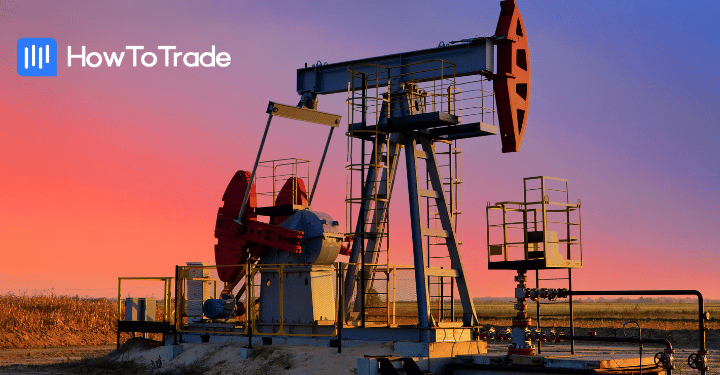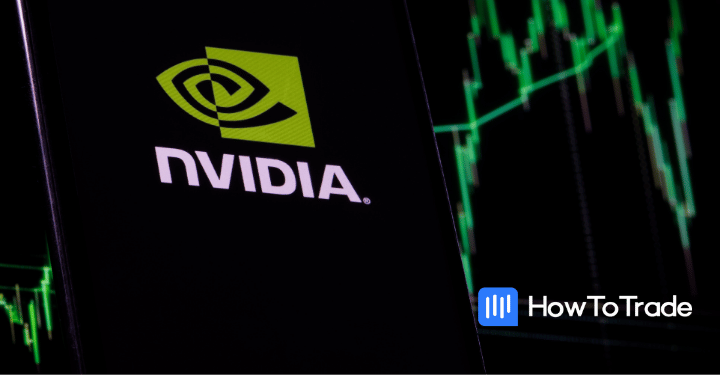
- The situation in the Middle East remains highly tense, with Iran and Israel at the center of the conflict.
- Any escalation in the Middle East can push oil and natural gas prices higher. Analysts suggest oil prices can reach $120-$135 if the situation worsens.
- Oil and natural gas traders must stay alert to any developments in the Middle East and trade accordingly.
The recent rising tensions in the Middle East have been posing a massive threat to the regional balance of power, with Iran and Israel pushing the entire region to the brink of war.
Needless to say, a war or conflict has negative implications for the global economy and specific high-demand commodities. And since Iran is a major player in the global oil and natural gas markets, any escalation can significantly impact oil and energy prices.
So, what could be the impact of an escalation in the Middle East? And how high can oil and natural gas prices go?
The Middle East Situation Right Now
As of writing, the situation in the Middle East is extremely tense. Following the recent assassination of Ismail Haniyeh on July 31 in Tehran, the Iranian regime has been threatening to attack Israel. Meanwhile, on August 25, the tensions heated up again after Israel launched strikes against Hezbollah in response to Hezbollah’s rain of rockets toward Israel. And so, the entire region is in a state of turmoil, with Israel, Iran, Gaza, Lebanon, and even Yemen being a direct part of the conflict. Other key players in this conflict include the United States, Russia, Saudi Arabia, Egypt, Iraq, Syria, and Turkey.
When analyzing the current situation in the Middle East, things get pretty complicated, with several potential escalation scenarios. Primarily, the Israel-Gaza war remains the main concern, with ceasefire talks at a critical point. Then, the conflict between Israel and Hezbollah appears to have no solution in sight. And lastly, as the tensions between Iran and Israel have escalated lately, so are the world’s concerns about a full-blown war.
An escalation in each one of the fronts can lead to higher oil and natural gas prices, especially when each front is connected to the other. Hezbollah is essentially a proxy of Iran, as well as Hamas in Gaza and the Houthis in Yemen. Therefore, the entire situation in the Middle East is alarming for the global economy and commodity prices.
How an Escalation in the Middle East Can Impact Oil Markets
The logic is simple: any escalation in the Middle East can push oil and natural gas prices higher. Evidently, before April 13, when Iran launched a missile and drone attack on Israel, oil prices spiked to $87 per barrel, the highest level since the beginning of the year. Then, following Haniyeh’s assassination by Israel on July 31, when rumors started building up around an Iranian response, oil and natural gas prices, once again, spiked.
However, you don’t need to be a genius to know that oil and natural gas prices will rise if the situation in the Middle East escalates. The real question is how high oil and natural prices will go if the situation worsens.
Notably, Iran is one of the largest oil prodcuers worldwide with a daily production of around 4 million barrels. With China being its largest customer, Iran’s role in the oil market and global economy is undeniable. As such, any escalation in the Middle East can push prices higher, with some analysts suggesting an increase of 56%-75% for the Brent oil benchmark, meaning somewhere between $120-$135 per barrel.
When it comes to natural gas, the situation is even more extreme. Iran is the third-largest natural gas producer in the world, accounting for 7% of global production. Without a doubt, another escalation between Israel and Iran can send natural gas prices to June’s price of $3 and even higher. Much higher.
At the same time, even though the situation in the Middle East is tense, there’s much to happen before things really get scary. Currently, all sides, including Iran, are trying to find a solution to avoid any escalation. As of late August, a report from the NY Times states that an Iranian military official hints that a strike on Israel may be delayed. Additionally, there are ongoing ceasefire talks between Israel and Gaza, which can potentially ease the escalation of tensions in the region. At the end of the day, it is likely that all sides wish to avoid a major war.
If that were to be the case, we might see oil and natural gas prices fall soon, or at least stay at current levels especially when taking into account the Russia-Ukraine war.
What Does This All Mean for Traders?
To sum up, the situation in the Middle East has a strong impact on oil markets. As a matter of fact, some conspiracies might say that one of the reasons for the Israel-Gaza war lies in the race to develop regional gas pipelines. On one side, there’s the Arab gas pipeline that includes the cooperation of Israel, the US, and Saudi Arabia. On the other hand, Russia and Iran have other plans to control the gas supply to Europe and the Middle East.
Overall, it is clear that a serious escalation in the Middle East can push oil and natural gas prices higher, perhaps to levels not seen over the past decade. Oil and natural gas traders, therefore, need to keep an eye on developments in the Middle East conflict and respond accordingly. But remember, the markets have a tendency to always look for the next issue to worry about. In financial markets, when one worry is resolved, two more take its place.
Risk Disclosure: The information provided in this article is not intended to give financial advice, recommend investments, guarantee profits, or shield you from losses. Our content is only for informational purposes and to help you understand the risks and complexity of these markets by providing objective analysis. Before trading, carefully consider your experience, financial goals, and risk tolerance. Trading involves significant potential for financial loss and isn't suitable for everyone.





